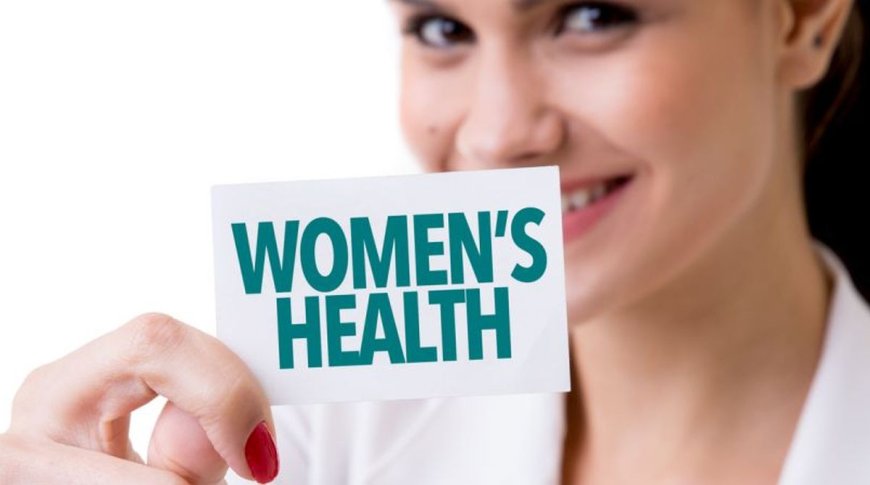Balancing Naturally: Top Hormonal Health Trends Women Are Embracing in 2025
Explore how women in 2025 are embracing natural solutions for hormonal balance. Learn about the most effective lifestyle, nutrition, and wellness trends backed by experts and science.

In 2025, the conversation around women’s wellness has evolved far beyond calorie counting and cardio workouts. Today, it’s all about hormonal health—and more importantly, how to nurture it naturally.
With the rise of lifestyle-driven hormonal imbalances like PCOS, thyroid dysfunction, endometriosis, and adrenal fatigue, women across India are turning to holistic, root-cause approaches rather than temporary fixes. And it’s not just millennials leading the charge—women across all age groups are exploring natural, non-invasive ways to reclaim balance.
Why Hormonal Health Is the Wellness Focus of the Year
Hormones influence everything from energy levels and metabolism to mood and reproductive health. Yet, they are often overlooked in mainstream wellness conversations.
According to a report by The Indian Menopause Society (IMS), nearly one in three Indian women experience hormone-related issues, with stress, diet, environmental toxins, and poor sleep being major contributors.
Additionally, rising awareness through platforms like Women's Health Concern and Flo Health has empowered women to track and manage their cycles, symptoms, and overall endocrine well-being.
Natural Ways to Support Hormonal Health in 2025
Forget fads. These research-backed lifestyle changes and ancient remedies are making a powerful comeback—and delivering real results.
1. Adaptogenic Herbs Are Leading the Pack
Adaptogens like Ashwagandha, Shatavari, Maca root, and Rhodiola are gaining popularity for their ability to support the adrenal glands, reduce cortisol, and improve reproductive function.
-
Wellness Mama offers excellent resources on using adaptogens safely.
-
Brands like Organic India now offer clinically tested, certified organic adaptogenic supplements.
2. Cycle Syncing Is Going Mainstream
Cycle syncing—adjusting workouts, diet, and rest according to menstrual phases—is being embraced for its ability to reduce PMS, improve fertility, and optimize productivity.
Apps like Clue and MyFlo help track menstrual phases and offer phase-specific wellness tips. Influencers and nutritionists across Instagram and YouTube are now sharing cycle-specific recipes and routines tailored to each hormonal stage.
3. Plant-Based, Anti-Inflammatory Diets
Nutrition continues to be foundational. Women are prioritizing whole foods, healthy fats, and fiber-rich meals to support gut health, reduce estrogen dominance, and balance insulin levels.
Leading dietitians recommend including:
-
Flaxseeds and pumpkin seeds (for phytoestrogens)
-
Leafy greens and cruciferous vegetables (for liver detox)
-
Omega-3s from walnuts and chia seeds
Get science-backed guidance on this from Dr. Mark Hyman and India-based wellness coaches like Luke Coutinho.
4. Prioritizing Sleep and Circadian Rhythms
Irregular sleep disrupts the delicate balance of melatonin, cortisol, estrogen, and leptin. In 2025, women are investing in blue-light blocking glasses, evening wind-down rituals, and EMF-free sleep environments.
Apps like Sleep Cycle and Calm offer tools to support circadian alignment.
5. Movement for Balance, Not Burnout
High-impact exercise can increase cortisol levels when done excessively. Women are now integrating gentler, hormone-friendly workouts like:
-
Yin yoga
-
Rebounding
-
Walking meditations
-
Pilates during the luteal phase
Yoga therapists trained under Bihar School of Yoga recommend syncing movements with the breath to help regulate endocrine function.
Tech Meets Tradition: Modern Tools Supporting Natural Healing
The rise of femtech is helping women monitor their hormone health with precision. Devices like Oura Ring and Tempdrop are being used to track basal body temperature and stress indicators to optimize fertility and hormonal patterns.
Meanwhile, Ayurveda remains a cornerstone for many. Clinics like Ayushakti and Kerala Ayurveda report a steady rise in female patients seeking panchakarma therapy and personalized dosha balancing plans.
The Role of Mental and Emotional Wellness
In 2025, women are recognizing that emotional suppression and chronic stress are hormonal disruptors. Therapies like journaling, guided meditation, sound healing, and energy work are no longer fringe—they’re integrated into mainstream wellness routines.
Free mental health support is also becoming more accessible via platforms like iCall at TISS and Fortis Mental Health, encouraging holistic healing without stigma.
Final Thoughts: It’s About Long-Term Resilience, Not Quick Fixes
Hormonal balance isn’t achieved overnight—it’s a journey rooted in consistency, awareness, and self-care. In 2025, women are shifting from a crisis-driven approach to a preventive, proactive mindset when it comes to their hormonal health.
True wellness begins when women feel connected—to their bodies, their cycles, and their inner rhythms.
This isn’t a wellness trend. It’s a powerful return to intuition, wisdom, and natural balance.
What's Your Reaction?
 Like
0
Like
0
 Dislike
0
Dislike
0
 Love
0
Love
0
 Funny
0
Funny
0
 Angry
0
Angry
0
 Sad
0
Sad
0
 Wow
0
Wow
0



















































